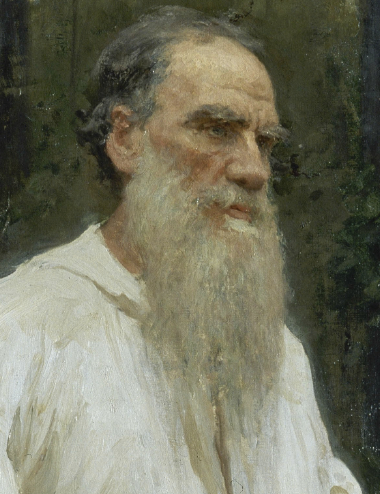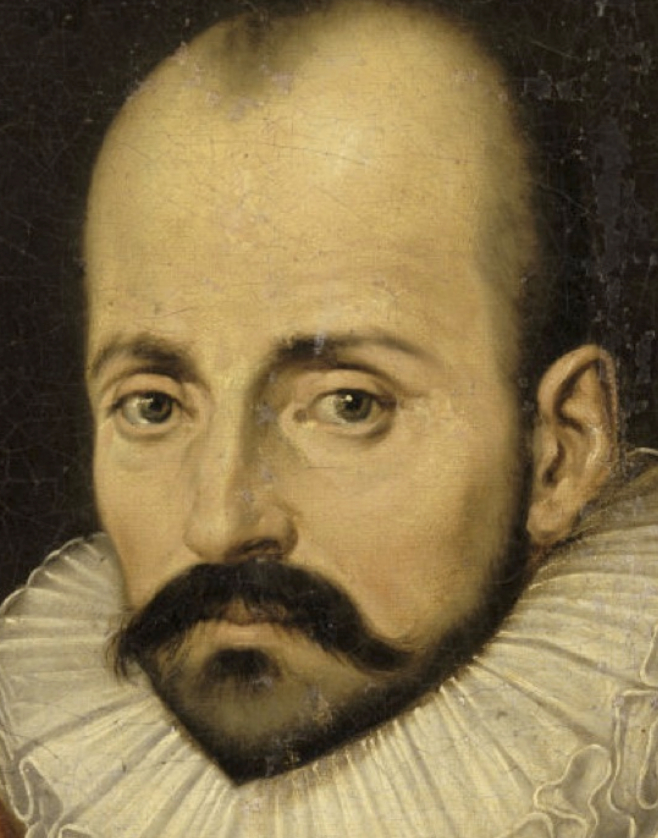September 9
Leo Tolstoy

On this date in 1828, the great Russian novelist Lev Nikolayevich Tolstoy was born as a landed count on his family’s Yasnaya Polyana estate near Tula. After serving as an officer in the Crimean War, his sense of social justice began to surface and he founded 13 schools for peasants after serfdom was abolished in 1861. He had a religious crisis in his 40s that caused him to denounce the powerful and corrupt Orthodox Church. Tolstoy called the church an “impenetrable forest of stupidity” and a “conscious deception that serves as a means for one part of the people to govern the other,” according to biographer Tikhon Polner (Tolstoy and His Wife, 1945).
Tolstoy, in such books as Critique of Dogmatic Theology, wrote that Jesus Christ was human, not divine, and rejected miracles and immortality. In My Confession (1882) he wrote, “If there is no higher reason —and there is none — then my own reason must be the supreme judge of my life.” The books were banned by church censors and Tolstoy was called an “impious infidel.” In 1895 he gave up his property, living as a nature-worshipping peasant, like his main protagonist in War and Peace.
In that novel he wrote, “Freethinkers are those who are willing to use their minds without prejudice and without fearing to understand things that clash with their own customs, privileges or beliefs.” As James A. Haught wrote in 2000 Years of Disbelief, “Many people who reject supernatural Christianity nonetheless embrace Christ’s message of compassion. Tolstoy carried this pattern to an extreme. He renounced organized religion and was excommunicated in 1901 by the Russian Orthodox Church — yet he became almost a monk, living in service to others.”
He espoused an ethical and ascetic Christianity. In What Is Religion? (1902), Tolstoy wrote, “One may say with one’s lips: ‘I believe that God is one, and also three’ — but no one can believe it, because the words have no sense.”
In 1862 Tolstoy married Sofia Andreevna Behrs, daughter of a court physician and 16 years his junior. They had 13 children, eight of whom survived childhood. Their later life together has been described as one of the unhappiest in literary history. Sofia was upset about his attempts to reject his wealth, opposed to his teachings she saw as radical and had grown envious of the attention he gave to his Tolstoyan “disciples.”
In 1910 he left home secretly in the dead of night in winter in an apparent attempt to escape her tirades and died of pneumonia a day’s journey from home after collapsing at the Astapovo railway station. “The Last Station,” a 2009 film about his final year, was based on a novel by Jay Parini. Christopher Plummer as Tolstoy and Helen Mirren as Sofia were both nominated for Oscars.
Photo: Tolstoy in a 1901 portrait by Ilya Repin.
“Religious superstition consists in the belief that the sacrifices, often of human lives, made to the imaginary being are essential, and that men may and should be brought to that state of mind by all methods, not excluding violence.”— Tolstoy, "The Slavery of Our Times" (1890)
Michel de Montaigne (Quote)

“Men of simple understanding, little inquisitive and little instructed, make good Christians.”
— Michel de Montaigne (1533-92), French philosopher, "Essays" (1580)
